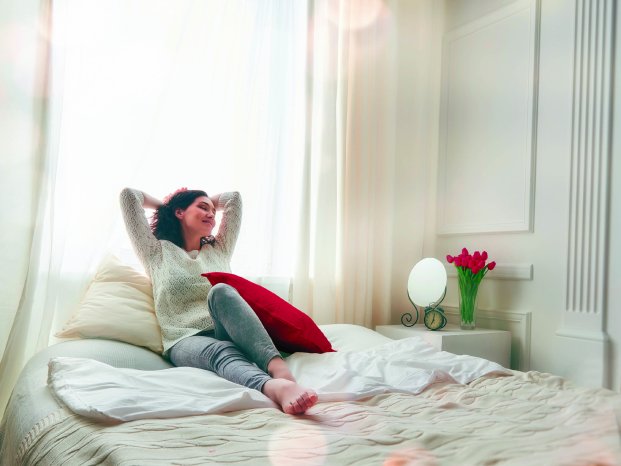According to the World Health Organization, over 80% of urban residents are exposed to high levels of air pollution1. The concentration of VOCs indoors is generally higher than outdoors2.. While many VOCs are not considered as harmful to health, such as perfumes and fragrances, some others such as acetaldehyde, formaldehyde, nitrogen oxide (NO) and d-limonene and other semi-volatile polycyclic aromatic hydrocarbons are attributed as responsible for significant negative impact on health by the World Health Organization (WHO). These VOCs come from outdoor sources as well as indoor sources such as furniture, paints, household cleaning products, sprays or cooking activities, as outlined in the clean air survey 2018, conducted by IKEA. Aiming to improve the lives of people through making everyday textiles more functional, HeiQ innovated a textile treatment that will use home fabrics such as curtains as a medium to purify the indoor air.
14 years ago, the Swiss company’s foundation was inspired by bad smells on polyester hiking clothes. The HeiQ Fresh product family has evolved into a comprehensive textile solution platform that achieves “freshness” by tackling both odor-generating sources and reducing VOCs. This latest innovation focuses on odorless, potentially harmful VOCs and the research result – HeiQ Fresh AIR – adds a new dimension to the HeiQ Fresh range. This technology will be available in the market first on Gunrid curtains from IKEA. “With HeiQ Fresh AIR, we aim to improve the air quality in consumers’ homes with ease, simply by hanging up a curtain and utilizing the natural light passing through the window. A simple tool for something so important, fresh air in your home.”, says Carlo Centonze, HeiQ’s co-founder and Group CEO.
How does it work? HeiQ Fresh AIR is a mineral-based Swiss technology infused into the curtain fabrics. It purifies the indoor air by using transmitted ultraviolet light (UVA) from the sun to transform problematic VOCs into components of fresh air. Curtains and other home fabrics infused with HeiQ Fresh technology therefore contribute to better homes with cleaner air.
How is the air purifying performance measured? Creating disruptive technologies for 14 years, HeiQ emphasizes the importance of identifying the correct testing methodology and creating standards to help brands, mills and consumers interpret the performance of a novel technology, By working closely with Prof. Dr. Detlef Bahnemann, head of Photocatalysis and Nanotechnology of the Leibniz University Hannover, Germany, test norms have been selected, capable to characterize the air purifying performance of fabrics infused with HeiQ Fresh AIR. The internationally recognized norms: ISO 22197-1 for NO and ISO 22197-2 for Acetaldehyde, the modified ISO 17299 to measure percentage reduction of VOCs as well as the modified ISO 10678 as a quick quality control test for mills.
1 https://www.who.int/airpollution/en/
2 Paciência et.al., 2016. A systematic review of evidence and implications of spatial and seasonal variations of volatile organic compounds (VOC) in indoor human environments. Journal of Toxicology and Environmental Health, Part B, 19(2), pp.47-64.

